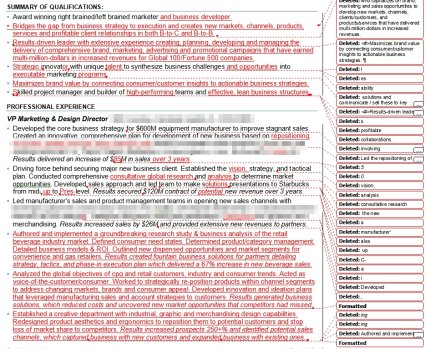ChittahChattah Quickies
Separating You and Me? 4.74 Degrees – In 2008, Microsoft found the number to be 6.6; it depends on how one defines a connection. Can we infer anything from Facebook having a looser definition than Facebook?
Adding a new chapter to the research that cemented the phrase “six degrees of separation” into the language, scientists at Facebook and the University of Milan reported that the average number of acquaintances separating any two people in the world was not six but 4.74. The original “six degrees” finding, published in 1967 by the psychologist Stanley Milgram, was drawn from 296 volunteers who were asked to send a message by postcard, through friends and then friends of friends, to a specific person in a Boston suburb. The new research used a slightly bigger cohort: 721 million Facebook users, more than one-tenth of the world’s population.
Who Uses SpiderOak? – More Personas Leaking Outside the Enterprise. Just because you have personas in your development process doesn’t mean you need to make that your marketing. It’s bad enough that you think and talk about your customers this way, at least have the good manners not to talk TO them this way.
Gavin the Geek – Gavin is a geek. He has been for as long as he can remember. Instead of playing with toy guns, he was ripping apart and rebuilding the Atari – a gift to his dad when he was a young boy. In his spare time, he builds servers for friends. In his professional time, he builds servers for friends. And then he gets to administer them all. Making sure they are all backed up, frequently, painlessly, and securely is crucial in maintaining his sanity. SpiderOak bounces into Gavin’s domain. Now, he can load SpiderOak on all of the servers, keep all the data secure, run everything from the command line, keep out of trouble, and never have to worry if, by chance, he didn’t build the server just right…
5 Ways to Think About Nuisance Fees [NYT.com] – Some great deconstruction of the way we respond to different types of fees, pointing towards some design principles for the creation of fees. The examples in this article are consistent with what we’ve heard in a number of studies.
The discussion starts with a three-pronged test of whether the fee is reasonable: is it fair, is it disclosed and do you have a choice about paying it? Fairness is the least clear, but Robin Block, a retired actuary in Manhattan, argues that the fee must have some relationship to the actual cost of providing the item or service. By that definition, the 3 percent currency conversion fees that credit and debit card issuers levy are unfair. Ditto the $10 or so a day that rental car agencies charge for GPS devices that retail for $100. Bank of America’s effort to charge $5 a month for debit cards is an interesting case study in this context of cost, given that it said that it all but had to add the fee because of new rules that limited what it could charge merchants for accepting the cards.
Ambidextrous magazine shuts down – Although their website is not with this sad news, here’s the email I just got. You can see my contributions here, here, and here.
We know it’s been a while and you’ve maybe wondered what has been going on with us. The global financial crisis, revolutions, The New York Times now charging online… a lot has happened. And with the downturn and the state of publishing, it has been tough. We fought as long as we could and unfortunately must now close Ambidextrous. The magazine has been a labor of love, but it has unfortunately not been organizationally and financially sustainable. Since 2005, we’ve done our best to help designers share their stories and to build a movement around that. As a movement, Ambidextrous will live on, and we should have conversations about what great next steps are for fostering intellectual discussion and sharing in the design community. It’s the community that makes us hopeful and pushes us to find the next outlet, the next forum, the next thing for us to collaborate on. So keep in touch. Share your ideas. Let’s meet again soon.








